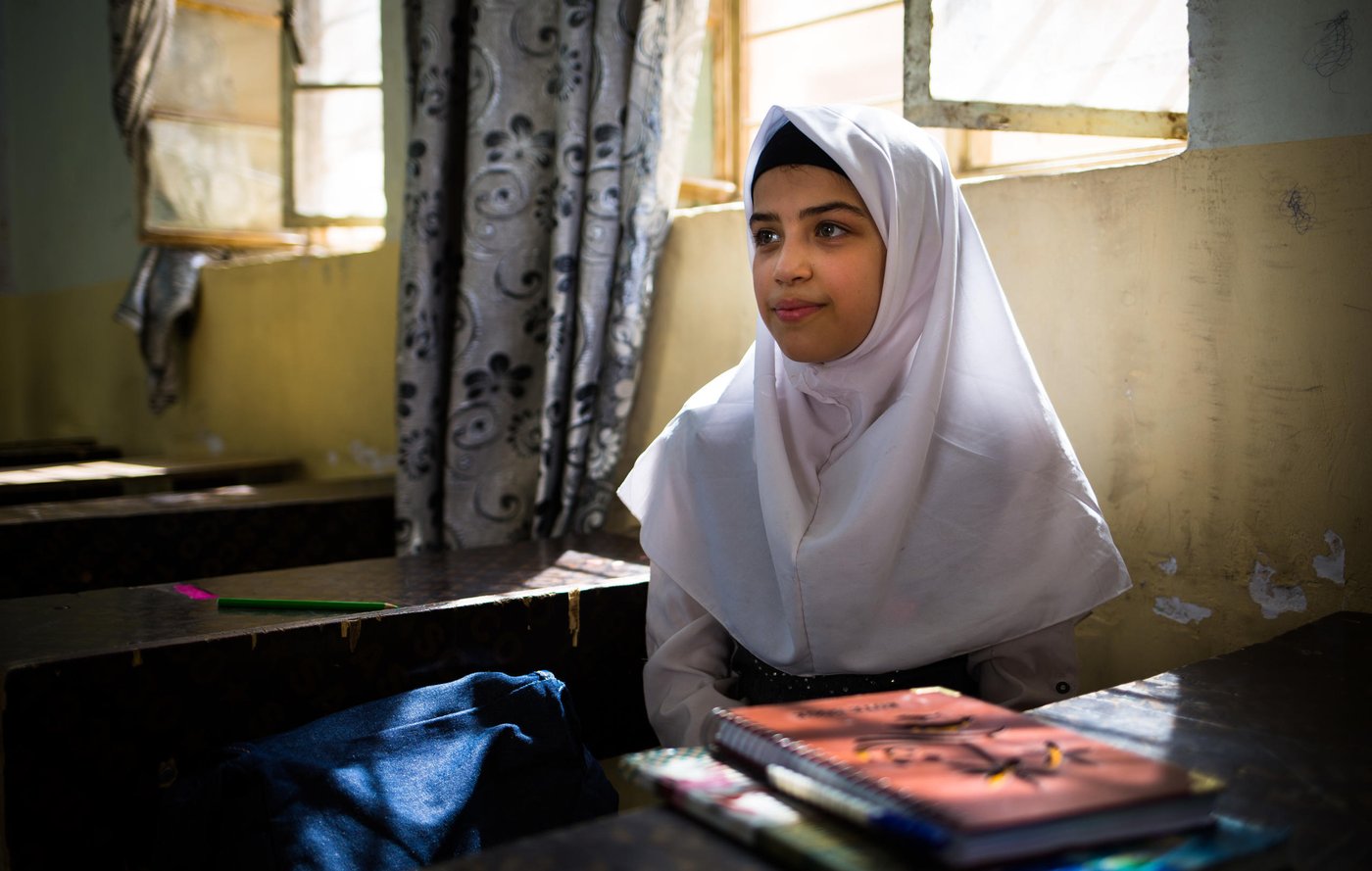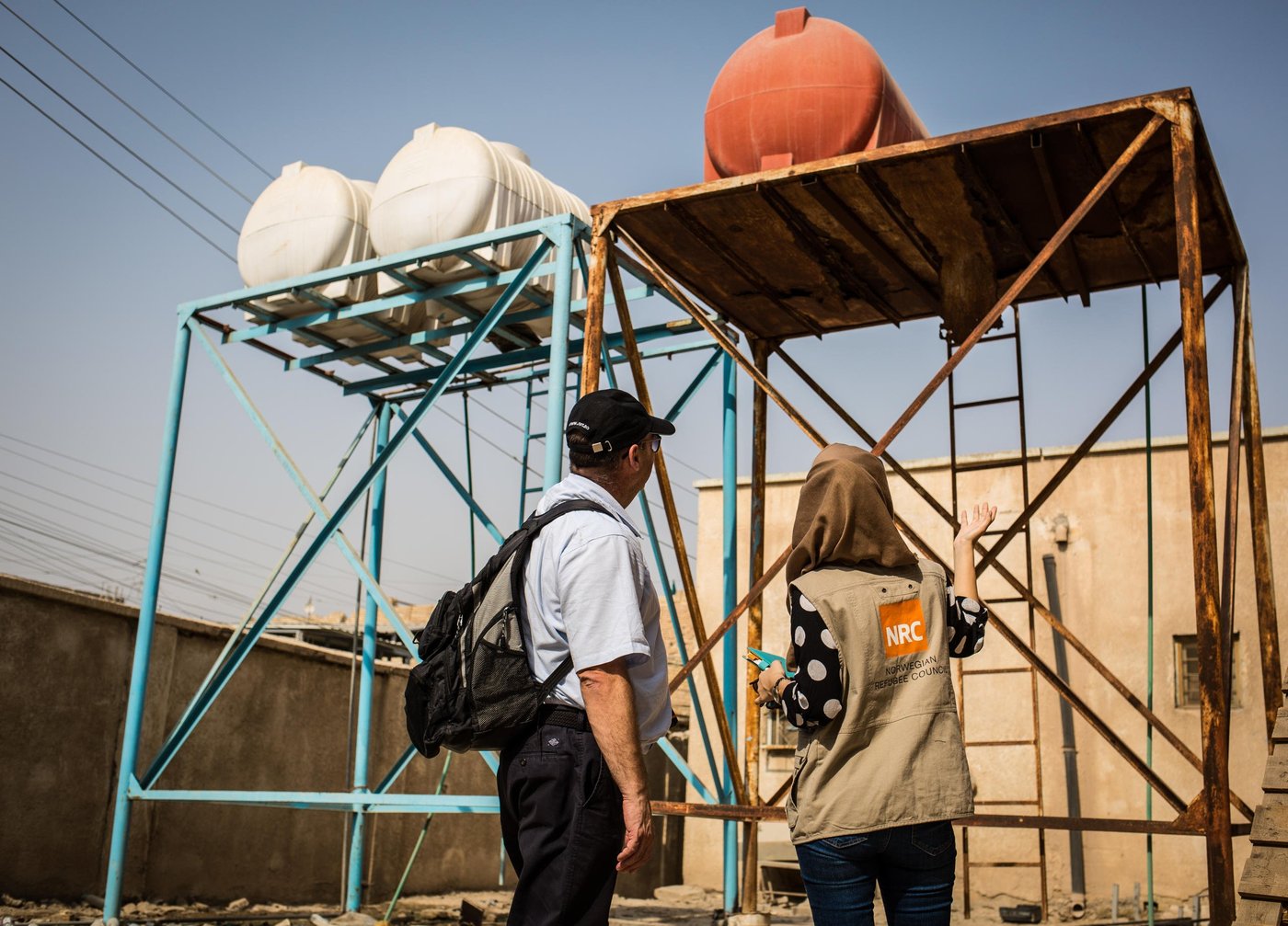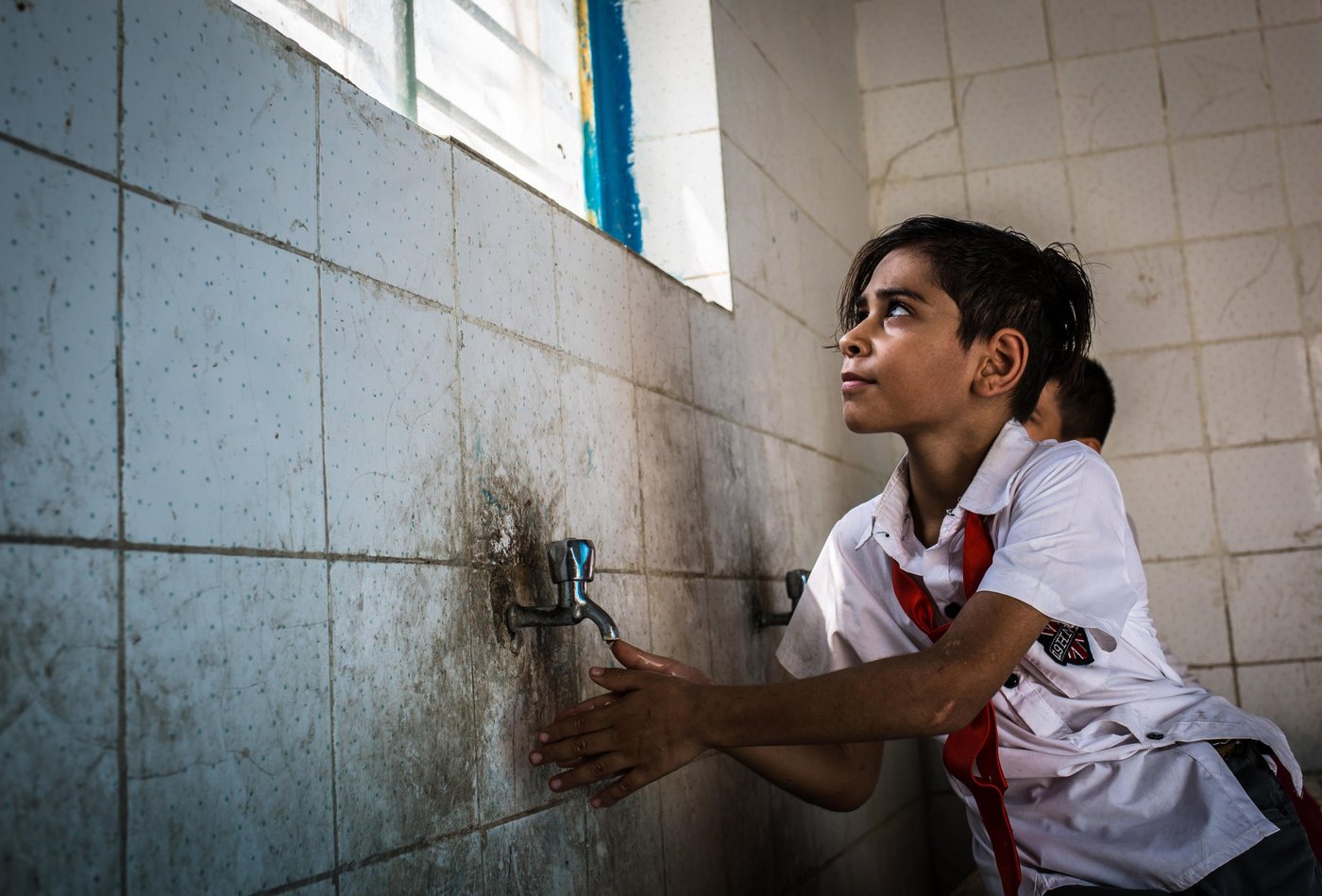The drinking water in Basra had become contaminated and many residents did not have access to clean water. More than 100,000 people were hospitalised after contracting water-borne diseases, and nearly 280,000 children were at risk of infection.
Many children were attending schools with rundown facilities, where simply turning on the tap to wash your hands had become a rarity. Broken toilets and dry pipes coupled with overcrowded classrooms created breeding grounds for disease, leading to many students dropping out of school. The water shortage also forced thousands of people to leave their homes.
"My friends got sick from the water"
Teachers and students told us they saw numerous cases of children hospitalised, suffering from diarrhoea, vomiting, rashes and scabies.
Seham Aziz, 14, from Basra is in the sixth grade of primary school. She described conditions in her school as insanitary: "It’s very difficult to learn in my school. Many of my friends don’t come to school because they got sick from the water. My brother got sick because he drank salty water and had to go to the hospital."
There were about 80 students in her class and never enough seats to go round. During the exams, groups of four students had to share a single desk. Sometimes students had to sit on the floor beside the door or the rubbish bin.
"We had only one toilet for the whole school, and most of the time it wasn’t working," Seham told us.

Schools from the 1970s
Hani Ibrahim, a headmaster in Basra, describes the situation in his primary school: "The school was built in the 70s and hasn’t been renovated since. It was supposed to be rebuilt in 2014, but it never happened."
Many Basra schools have two to three shifts per day. Thousands of children share the same building and the same unhealthy conditions. Most of the families can’t afford bottled water – it has become too expensive because of the crisis.
"The school had broken toilets, with no clean water, doors or lights," says Hani. "On some days I thought about closing the school because there were too many cases of diarrhoea."

How we responded
While the water crisis in Basra drew the world’s attention last summer, very little action was taken. Worried that the situation would only get worse, NRC responded.
We deployed experts to Seham’s school and 11 others to install water tanks and renovate taps and toilets. This work has ensured that more than 21,000 students will have a safe and sanitary learning environment for years to come.
"Before, we could not go to the toilet – and if we did, we had to wash our hands with dirty water. Now the toilets are clean, we are not worried anymore," Seham explains.
What we have done is a start, but it’s still a drop in the ocean. More than 500 schools in Basra still lack clean water and healthy sanitation facilities. This is an example of what can and should be done to protect Iraqi children from water-borne diseases before next summer.
Read more about our water, sanitation and hygiene promotion work


